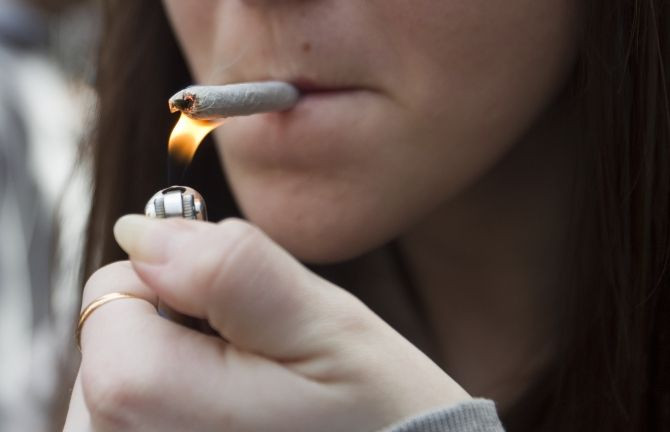Scientists Find Gene That Links Marijuana to Mental Illness

Researchers have long suspected that people who are exposed to marijuana during their adolescence are at increased risk for psychotic illnesses, particularly schizophrenia. As states across the United States increase access to medical marijuana, and as Washington and Colorado have legalized recreational use of the drug, many public health experts fear that states may be putting people at risk for the development of psychosis. Many have hoped that scientists would be able to devise a test to determine which patients would be at increased risk for cannabis-induced psychosis.
Researchers from Kings College London in the United Kingdom and Catanzaro Medical School and Palermo University in Italy believe that they may have put doctors on their way for developing such a test.
Previous studies have linked cannabis psychosis with variations of a gene that encodes the protein RAC-alpha serine/threonine-protein kinase, called Akt1. The gene is linked with the signaling of dopamine, which often holds an important role in mental illness.
The study looked at 489 patients who had just had their first psychotic episode and compared them with 278 controls. Researchers asked all of the volunteers about their history with cannabis use. They also performed genotyping on all of the study participants. They found that the AKT1 genotype significantly increased cannabis users' risks of developing psychosis.
"We found that cannabis users who carry a particular variant in the AKT1 gene had a two-fold increased probability of a psychotic disorder and this increased up to seven-fold if they used cannabis daily," the study authors said in a statement. "Our findings help to explain why one cannabis user develops psychosis while his friends continue smoking without problems."
Researchers say that their findings are not enough to construct a genetic test, but they do indicate a genetic component underpinning cannabis psychosis. Scientists hope that, if they better understand the link, they can find treatment for the condition.
The study was published in the journal Biological Psychiatry.



























